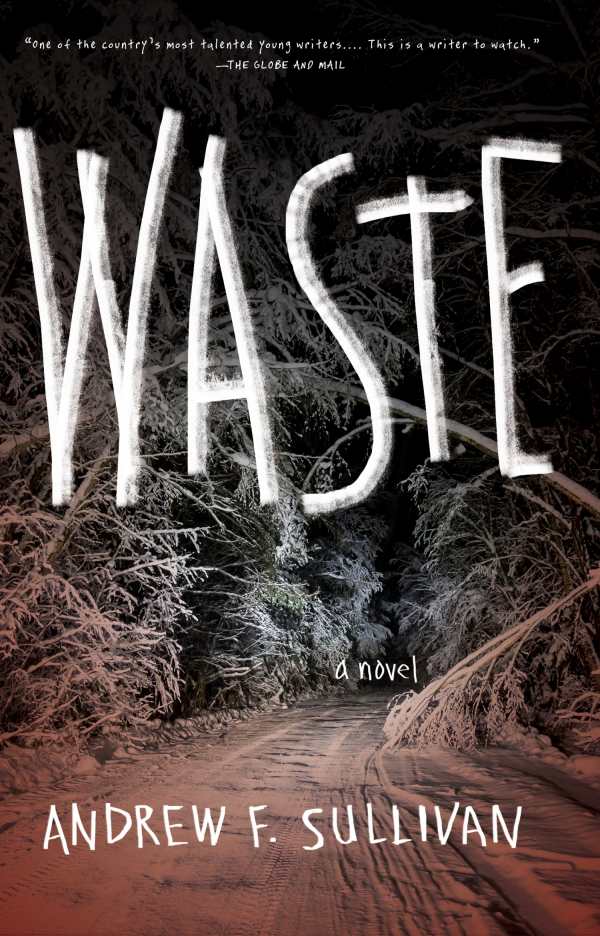Waste
Adrenalin-laced and with a strong sense of the absurd, this small-town Canadian novel explores situations both dark and amoral.
Andrew F. Sullivan’s Waste takes place in a small Canadian town over a December weekend in 1989. Larkhill, Ontario, is a place where parents have abandoned their families, factories have closed, the mental hospital has become a greenhouse for pot, and the motels are bloodstained. If there is a good side of town, we never see it.
The story follows two main characters—Moses, the ringleader of an aspiring young gang of skinheads, and Jamie, a former high-school bully now caught in a dead-end job. One night, Jamie gives Moses a ride home from their job at the meat packing plant, and the car hits a lion. The zoo has been closed for years: this lion belongs to someone. They drag it off to the side of the highway, but they know it’s just a matter of time before it’s missed and someone comes after them.
Short chapters alternate between Moses and Jamie. There is Moses’s gang with their badly shaved heads and self-inflicted tattoos. Kevin, suffering from whiplash after the accident, goes to Henry’s Holistic Hobbies, where a young man with no teeth sells painkillers. Making periodic appearances are the bearded Vine brothers and their deadly toolbox, who work for the local drug lord and owner of the lion.
The characters are broken, but Sullivan treats them with empathy. Moses is guilty of senseless brutality, yet he protects his mother, brain-damaged after being hit with a bowling ball. Jamie, despite a bad temper, seeks a better future for his daughter. There is also a bowling ball named the Judge, a seedy hotel called The Dynasty, and a body in the trim barrel at the butcher shop. The subject matter will not be for everyone, but the writing is adrenalin-laced, with a strong sense of the absurd.
Sullivan is the author of the short-story collection All We Want Is Everything. Waste is his first novel. Waste does not offer a choice between good and evil, but between the seriously flawed and the amoral. It may not be the choice we want, but it’s the only one we’re given.
Reviewed by
Karen Ackland
Disclosure: This article is not an endorsement, but a review. The publisher of this book provided free copies of the book to have their book reviewed by a professional reviewer. No fee was paid by the publisher for this review. Foreword Reviews only recommends books that we love. Foreword Magazine, Inc. is disclosing this in accordance with the Federal Trade Commission’s 16 CFR, Part 255.

